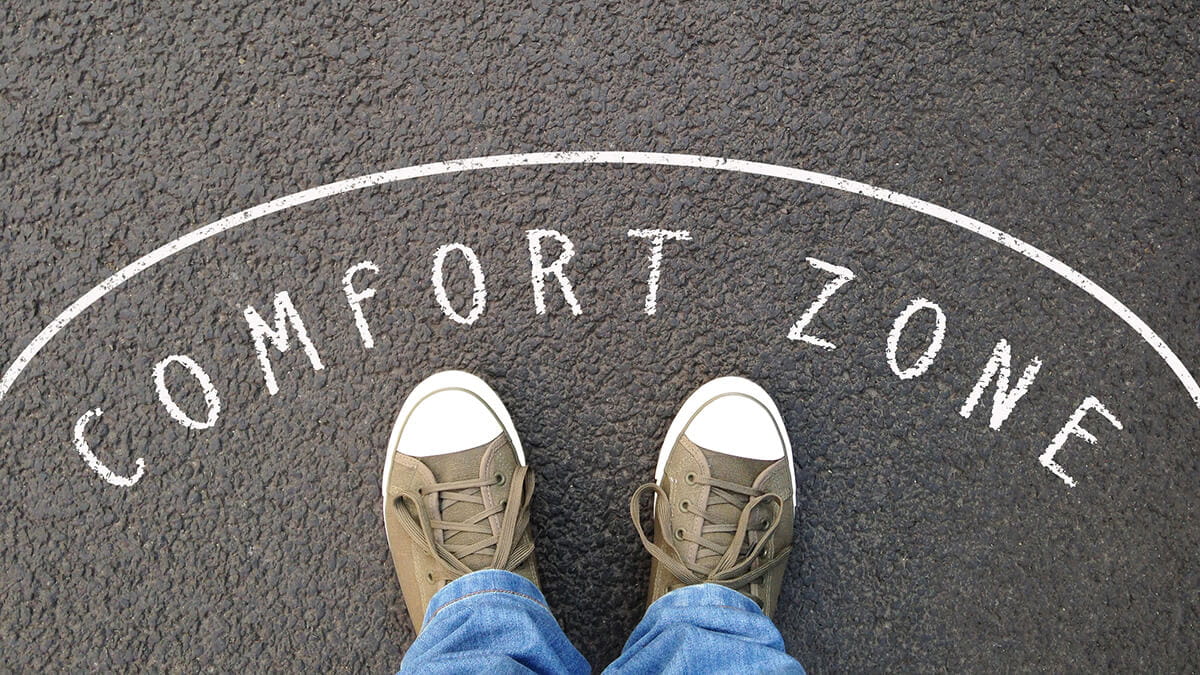Why We Avoid Leaving the Comfort Zone: Perspectives from Psychology and Neuroscience
Newsletter about software engineering, team management, team building, books and lots of notes I take after reading/studying (mine or yours)… :D

A large part of the people who read my texts are software engineers, so I decided to write speaking to them (software engineers), most likely you! 😊
Software engineers are no exception when it comes to avoiding the unknown and uncertainty. Biological, psychological, and sociocultural inclinations interact to keep software engineers in a psychological comfort zone.
Evolutionary Adaptation
We humans naturally favor the safety of familiarity. Our evolutionary past has shaped our brain to favor the "known" at the expense of the "unknown". For a software engineer, this may manifest as a hesitation to learn a new programming language or adopt new methodologies.
"Motivation for Permanence: Evolution and Survival" (in Spanish), the article explores the evolution of the comfort zone, by testing pedestrians walking on a busy street. It suggests that the comfort zone is an evolutionary adaptation that has assisted our survival.
Whenever pedestrians walk through a busy street, they are continuously avoiding collisions with incoming pedestrians. Before an encounter ends in a collision, the pedestrian decides - unconsciously - to change their route to prevent colliding with another pedestrian.
Physicists from the Eindhoven University of Technology, in collaboration with researchers from the United States and Italy, analyzed 5 million pedestrian movements at the Eindhoven train station in the Netherlands. Thanks to the research, the experts discovered that people prefer to maintain - on average - a distance of at least 75 centimeters.
The Energetic Cost of Change
Neuroscience shows that the brain prefers to conserve energy. When a software engineer needs to learn a new technology or change their programming style, it forces the brain to create new neural connections and discard the old ones. This is more difficult and requires more energy than simply following what is already known.
"Homeostasis and Balance: Biology of the Comfort Zone" (in Spanish), the article explores why it is essential to be in an uncomfortable zone seeking learning and professional evolution, emphasizing that the comfort zone is a state of biological balance that the body tries to maintain.
Anxiety and Professional Burnout
Software engineers are often under pressure to solve complex problems and meet rigorous deadlines (this is a controversial point that I need to write another blog post about, in many moments we have the possibility of saying "no", but we can't or are afraid to say it), which can already lead them to high levels of stress. When the idea of leaving the comfort zone and embracing novelty is added to this load, it can result in overwhelming anxiety or even professional burnout.
"Anxiety and Professional Burnout as Key Factors in the Comfort Zone" (in Spanish), the article explores how anxiety (crossed out because we need to learn to deal with our anxieties) and professional burnout can be key factors that keep people in their comfort zone.
Social and Structural Expectations
Technology work environments are often highly structured with clear expectations. This can make software engineers stuck in certain norms and routines, making it more challenging to step out of the comfort zone. In addition, the need to keep up-to-date with rapidly changing technological innovations can sometimes cause them to opt for technologies with which they are already familiar to meet time and productivity demands.
"Comfort Zone as a Social Construct" (in Spanish), the article explores how the comfort zone is a social construct that can be shaped by societal expectations and norms.
Several factors collaborate to keep software engineers within their comfort zones. Recognizing and understanding these elements may be the first step to overcoming the barriers to personal and professional growth.
It is necessary to know oneself and ask difficult questions, such as:
- What am I avoiding?
- If it goes wrong, what can I do to recover?
- What can I do to feel safer when stepping out of the comfort zone?
note: if it goes "wrong", you can go back to where you came from, but with a wealth of knowledge and experience that you would never have had if you had not faced your fears.